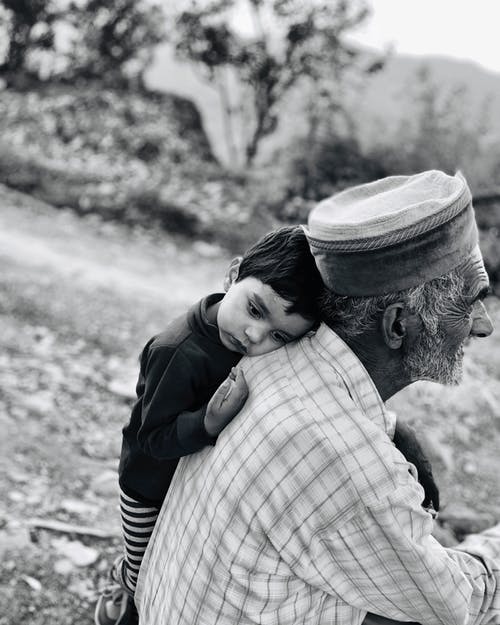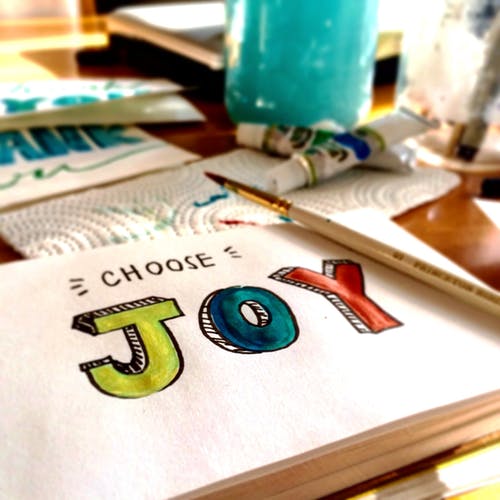Training Series: Trauma-Informed Care with Experiential Psychotherapies
Every day we are learning more about the effects of trauma and how the trauma experience is stored in the brain and the body until it is identified, addressed and healed. Trauma-informed care is an approach to care that understands the prevalence and impact of trauma, recognizes the impact those effects have on behavior and responds in a manner that is supportive, encouraging and empowering.
This quarterly training series, starting January 2020, explores trauma–informed care, combining up-to-date trauma information with the safe application of experiential and creative arts therapies and activities, including psychodrama, sociometry, Family Constellations, art making and meditation.
The series will focus on best practices in trauma-informed care integrated with experiential psychotherapies, which are increasingly documented as therapies of choice for survivors of trauma. Brain researchers demonstrates that it is the repeated experience that activates growth and connection within the brain, so just as traumatic experiences change the brain, so can positive and integrated experiences contribute to healing change.
Instructor is Karen Carnabucci, LCSW, TEP, who has long-standing expertise and experience in trauma assessment, treatment, experiential methods, and prevention and treatment of substance abuse disorders.
This program, sponsored by the Lancaster School of Psychodrama and Experiential Psychotherapies, is suitable for mental health professionals, educators, physicians, nurses, health care administrators, first responders, creative arts therapists, alternative practitioners, midwives, youth leaders, human resources specialists, addictions professionals and others.
This quarterly training series, starting January 2020, explores trauma–informed care, combining up-to-date trauma information with the safe application of experiential and creative arts therapies and activities, including psychodrama, sociometry, Family Constellations, art making and meditation.
The series will focus on best practices in trauma-informed care integrated with experiential psychotherapies, which are increasingly documented as therapies of choice for survivors of trauma. Brain researchers demonstrates that it is the repeated experience that activates growth and connection within the brain, so just as traumatic experiences change the brain, so can positive and integrated experiences contribute to healing change.
Instructor is Karen Carnabucci, LCSW, TEP, who has long-standing expertise and experience in trauma assessment, treatment, experiential methods, and prevention and treatment of substance abuse disorders.
This program, sponsored by the Lancaster School of Psychodrama and Experiential Psychotherapies, is suitable for mental health professionals, educators, physicians, nurses, health care administrators, first responders, creative arts therapists, alternative practitioners, midwives, youth leaders, human resources specialists, addictions professionals and others.
Creating Safety and Connection: The Basics of Trauma-Informed Care
9 a.m. to 4 p.m. Jan. 31, 2020
When trauma happens, trust and connection are damaged. The survivor of trauma struggles to find places of protection and safety. The inclination is to “think” through the trauma or to suppress it, but neither choice will create the shift into healing that is so greatly needed. In addition, the possibility of re-traumatization is real because the nature of trauma lends itself to reenacting the trauma long after the actual event has passed. The lasting effects of trauma – insecure attachments, hyperarousal, persistent negative thoughts, avoidance and re-experiencing symptoms – demand that professionals respond with the best practices for trauma-informed care and support the repair of trust with self and others. In this training workshop, instructed by Karen Carnabucci, LCSW, TEP, and Sharon Czabafy, DSW, LCSW, CAADC, NCTTP, CET, MAC, we will employ a variety of experiential activities from the Therapeutic Spiral Model to demonstrate containment and safe relationship building. You will learn:
You may register for this series in several ways:
Questions? Contact Karen here. |
Creating Body Awareness: The Body Remembers What the Mind Forgets
Online training 9:30 to 11:30 a.m. on April 17, April 24 and May 1 (plus bonus mini-training following)
When we understand that trauma is stored in the body, we have a greater understanding of why traditional talk therapy has its limitations. Dr. J.L. Moreno, the developer of psychodrama, famously said, “The body remembers what the mind forgets,” but it has taken decades to understand exactly how trauma lingers within the tissues of the body. With the rediscovery of psychodrama and its related methods of sociometry, and other creative arts therapies, we now have many more tools to understand and assist with the arc of trauma recovery. Because the brain is a living organ with a great capacity for change, we can reshape the brain with improvisational play, art making, and other experiential activities. In other words: when we have new and different experiences, the brain responds. In this three-part online training workshop, instructed by Karen Carnabucci, LCSW, TEP, we focus on how the body responds to trauma and experiential ways to work with the body that support physical, mental and emotional healing. We will use elements of psychodrama -- including the well-known Therapeutic Spiral Model -- and sociometry, Family and Systemic Constellations, art making, experiential activities and group sharing during this interactive workshop. April 17 The Body Responds to Collective Trauma In this two-hour online training workshop, we focus on how the body responds to trauma and how attention to body awareness is important at times of high stress. You will learn:
The Body Remembers What the Mind Forgets In this two-our online training workshop, instructed by Karen Carnabucci, LCSW, TEP, we focus the neurobiology of the brain and ways to work with the body that support mental, emotional and energetic healing. You will learn:
Honoring the Body for Resilience in Times of Stress In this two-hour online training workshop, instructed by Karen Carnabucci, LCSW, TEP, we focus on how to maximize strengths and resilience of the body, even in times of stress and trauma. You will learn:
Tuition for this online training is $125 which includes all three workshops. You will receive a certificate for a total of six CE credits for social workers, marriage and family therapists, licensed counselors and psychologists, plus psychodrama and Act 48 hours; class handout; and a video recording of each program. How to register You may register for this series online with your credit card here. A nominal surcharge will be added to the program fee. Other information Please note that this revised training is adapted from our originally scheduled in-person training at Liberty Place in Lancaster, Pa., on April 17. We have updated the material not only for online purposes but also to address the current collective trauma of the Coronavirus pandemic and how we are personally impacted as helping professionals and how we can effectively support our clients, patients, students and others we work with. Online information This online program will be offered through Zoom, a popular video conferencing platform, which you may access at www.zoom.us. After you register online, you will receive information by e-mail about the Meeting ID and password. If you are not familiar with Zoom, we recommend that you download it on your desktop or laptop computer, tablet or smart phone and begin to explore its features so that you will be able to use the program easily and effectively starting April 17. If you have a desktop computer, you will need a webcam and speakers to hear and see us and each other. Your laptop should already have built-in camera and speakers. We do not suggest using your smart phone since the picture will be small; however, if that is your own option it is workable. How to prepare When you are getting ready to prepare for the class days, we recommend that you have on hand:
Each of the classes will take place from 9:30 to 11:30 a.m. Eastern Time. If you are interested in this program and will be calling from another time zone, please refer to this time zone converter here. Bonus post training Attendees may opt to participate in a bonus body “experience” from 11:30 a.m. to noon following the main presentation. Topics will include Mary Kalbach, certified EFT practitioner, April 17; Christie Kern, L.Ac., MSOM, RMT, on qigong and acupressure, on April 24; and Tori Akerley, certified yoga instructor, on May 1. Questions Questions, comments or needs? Contact Karen to discuss. |
Creating the Bigger Picture: Addressing and Healing Ancestral TraumaOnline training 9:30 to 11:30 a.m. (Eastern Time) on July 17, July 24 and July 31
Recent advances in epigenetics and quantum physics show that we inherit traumatic experiences from previous generations that linger within our bodies, minds and spirits. We can easily begin to believe that the difficulties that we are experiencing – chronic anxiety, depression, addiction, health problems, bad fortune, chronic trauma and the like – are not only our fault but also our destiny. Family Constellations, a new approach developed by Bert Hellinger, a family therapist from Germany, gives us a new perspective on how to address inherited trauma. Breaking away from traditional therapeutic concepts, it identifies how trauma becomes lodged in the greater family system -- even generations ago -- and continues to impact the family and a person within the family. In this training workshop, instructed by Karen Carnabucci, LCSW, TEP, we look at practical ways to identify ancestral trauma that has spilled on down the generations and how we can use our empathic perception to identify the felt sense of unconscious ancestral memory. In this three-part online training workshop, instructed by Karen Carnabucci, LCSW, TEP, we look at practical ways to identify ancestral trauma that has spilled on down the generations as well as how we can use multiple tools to support the investigation and resolution of ancestral trauma. Each two-hour class will explore a segment of ancestral trauma, also known as intergenerational or trans-generational trauma, and how helping professionals may create safety and appropriately address support resolution of such trauma. We will use elements of psychodrama -- including the well-known Therapeutic Spiral Model -- and sociometry, Family and Systemic Constellations, art making, experiential activities and group sharing during this interactive workshop. July 17 The Realities of Intergenerational Trauma In this two-hour online training workshop, instructed by Karen Carnabucci, LCSW, TEP, we focus on the realities of intergenerational trauma and how helping professionals may knowledgably address such concerns. You will learn:
Beyond Traditional Genogram: Researching Family History In this two-hour online training workshop, instructed by Karen Carnabucci, LCSW, TEP, we focus on how specific ways to collect and understand the kinds of intergenerational trauma that shows up in family systems. You will learn:
July 30 Resolving Collective and Cultural Trauma In this two-hour online training workshop, instructed by Karen Carnabucci, LCSW, TEP, we focus both on intergenerational trauma within our family systems as well as the larger collective as well as experiential methods that support identification and resolution. You will learn:
Tuition Tuition is $125 for the three-part program if registered by July 14 ($150 after) and includes a total of six CE credits for social workers, marriage and family therapists, licensed counselors and psychologists, plus psychodrama and Act 48 hours. You will receive a variety of handouts that will be posted online for downloading before and after each class. As always, there will be the limited option to address personal work in action and to bring case consultations forward for commentary and supervision. How to register: Register online for the series of three classes on July 17, July 24 and July 31 here. Early Bird discount is available if registered by July 14. Questions? Contact Karen here. |
Creating Possibilities:
|



